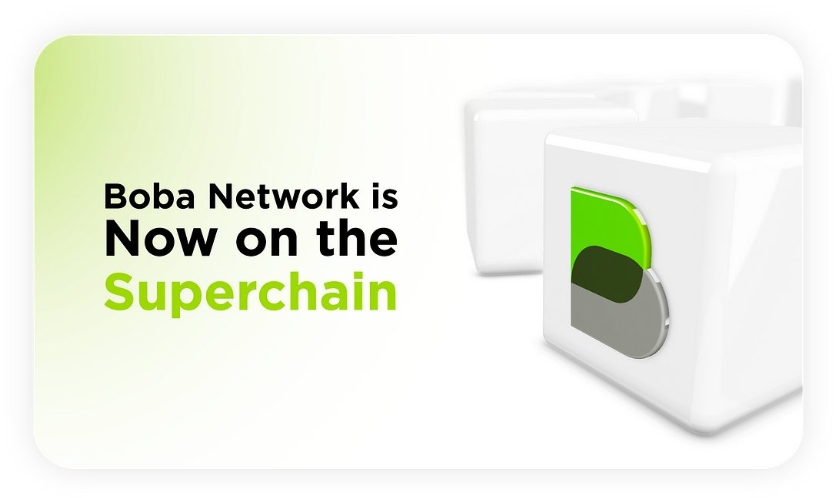
We explore the different types of crypto trading strategies, from day trading to HODLing, and discuss key factors to consider such as risk tolerance and market volatility.
Find the best trading strategies for crypto, including tips on scalping, swing trading, position trading, and HODLing.
Learn about common mistakes to avoid in the volatile world of crypto trading and stay tuned for expert advice and insights!
What is Crypto Trading?
Crypto trading involves the buying, selling, and exchange of cryptocurrencies in various markets, such as decentralized exchanges and centralized platforms. It is a volatile yet rewarding venture where traders aim to profit from the fluctuating prices of digital assets.
The dynamic nature of crypto trading is driven by factors like market sentiment, regulatory developments, and technological advancements. Traders have a plethora of market options to explore, from popular assets like Bitcoin and Ethereum to emerging altcoins with potential for rapid growth.
Amidst the potential for high profits, risk management is crucial in navigating the volatile 2dots crypto landscape, with strategies such as setting stop-loss orders, diversifying portfolios, and conducting thorough research before making investment decisions.
What Are the Different Types of Crypto Trading Strategies?
To navigate the cryptocurrency market successfully, traders employ a variety of strategies that include technical analysis, fundamental analysis, and the implementation of the best-suited trading tactics. Each strategy comes with its own set of principles and methodologies to guide traders in making informed decisions.
Day Trading
Day trading in the crypto market involves executing trades within the same day to capitalize on short-term price movements. Traders closely monitor market trends and capitalize on volatility to make quick profits.
This form of trading requires a keen eye for recognizing patterns and trends in the market. One common strategy is technical analysis, where traders use historical price data and indicators to predict future price movements. By identifying support and resistance levels, traders can gauge potential entry and exit points. Risk management is crucial in day trading due to the high levels of volatility. Traders often set stop-loss orders to limit potential losses and secure profits swiftly. Expertise in reading charts and understanding market psychology play a significant role in successful day trading in cryptocurrencies.
Swing Trading
Swing trading involves capitalizing on medium-term price trends by analyzing candlestick patterns, moving averages, and other technical indicators. Traders aim to capture ‘swings’ in asset prices for profitable trades.
These traders typically hold positions for days to weeks, unlike day traders who close positions within the same trading day. By strategically utilizing candlestick patterns and moving averages, swing traders identify potential entry and exit points based on market trends and price actions. Candlestick patterns provide valuable insights into market sentiment and potential reversals, while moving averages help smooth out price fluctuations to reveal underlying trends. Technical analysis serves as the cornerstone of swing trading strategies, enabling traders to make informed decisions and effectively manage risk.
Scalping
Scalping is a short-term trading strategy that focuses on making quick profits from small price movements. Scalpers closely monitor market liquidity and the order book to execute rapid trades for minimal gains per trade.
The success of scalping in crypto trading relies on the ability to capitalize on minute price differentials by entering and exiting positions swiftly. By keeping a keen eye on market liquidity, scalpers ensure that they can execute trades promptly without significant price slippage. Analyzing the order book provides valuable insights into the supply and demand dynamics, allowing scalpers to gauge potential price direction and plan their trades accordingly. This strategic approach to trading requires discipline, quick decision-making, and a deep understanding of market dynamics.
Position Trading
Position trading involves taking a long-term view on the market by following major trends and considering the risk-reward ratio before entering a trade. Traders aim to capture substantial price movements over an extended period.
This strategy requires a disciplined approach, where traders closely monitor trend indicators such as moving averages and trendlines to identify entry and exit points. By following trend-following techniques, traders can establish positions that align with the prevailing market direction, potentially maximizing profits.
Risk assessment plays a crucial role in position trading, as traders evaluate potential risks associated with a trade and adjust position sizes accordingly. Maintaining a favorable risk-reward ratio is paramount in making informed trading decisions, ensuring that potential profits outweigh potential losses in each trade.
Arbitrage
Arbitrage involves exploiting price differences of the same asset on different exchanges or within the same exchange to make a risk-free profit. Traders leverage the inefficiencies in the market to execute profitable trades.
Cryptocurrency exchanges play a crucial role in enabling arbitrage opportunities as they are platforms where traders can buy and sell digital assets. These exchanges often have varying prices for the same cryptocurrency due to factors such as liquidity, demand-supply dynamics, and geographical differences. By taking advantage of these price differentials, traders can simultaneously buy low on one exchange and sell high on another, profiting from the price gap. This form of market arbitrage allows traders to capitalize on discrepancies and generate returns without bearing any market risk.
HODLing
HODLing, a term derived from a misspelled ‘hold,’ refers to the strategy of holding onto cryptocurrencies for an extended period, often as a long-term investment in a diversified portfolio. This strategy seeks to benefit from the potential long-term growth of digital assets.
By adopting the HODLing strategy, investors aim to ride out the volatile nature of the crypto market, allowing their assets to potentially appreciate in value over time. Long-term investors believe in the fundamental strengths of certain cryptocurrencies and hold onto them despite short-term price fluctuations. This approach not only helps in avoiding impulsive decisions based on market turbulence but also promotes a disciplined approach to managing one’s cryptocurrency portfolio for sustained growth.”
What Are the Factors to Consider When Choosing a Crypto Trading Strategy?
Selecting a crypto trading strategy requires careful consideration of factors such as risk management techniques, emotional control, and the practice of backtesting strategies. Traders must assess their risk tolerance, discipline, and historical performance to choose the most suitable approach.
Risk Tolerance
Risk tolerance refers to a trader’s willingness to accept market uncertainties and potential losses. Evaluating one’s risk tolerance involves assessing personal financial goals, risk appetite, and the development of a comprehensive risk management plan.
Understanding your risk tolerance is crucial in crypto trading as it influences your decision-making process. By gauging how comfortable you are with fluctuations in the market, you can determine the level of risk you are willing to undertake.
Strategies for assessing risk levels typically involve using tools like risk assessment questionnaires or engaging in simulated trading to test your reactions to different scenarios.
Developing a solid risk management plan is essential for safeguarding your investments and minimizing potential losses. This plan should outline your risk mitigation strategies, diversification techniques, and exit points to manage downside risk effectively.
Time Commitment
Time commitment plays a crucial role in determining the effectiveness of a crypto trading strategy. Traders should allocate sufficient time for market analysis, monitoring trading signals, and assessing trading volume to make informed decisions.
This dedication to time management is essential as it allows traders to stay ahead in the fast-paced world of cryptocurrency. By setting aside dedicated hours for thorough market analysis, traders can identify trends, potential price fluctuations, and key entry and exit points. Continuous monitoring of trading signals ensures that traders are able to react promptly to any shifts in market sentiment. Evaluating trading volume provides valuable insights into market liquidity and potential price movements, helping traders make calculated decisions based on data rather than emotion.
Market Volatility
Market volatility refers to the degree of price fluctuation in the cryptocurrency market. Traders must analyze price action, identify market trends, and adapt their strategies to navigate the dynamic nature of volatile markets.
Understanding price action analysis involves interpreting the movements of asset prices to make informed trading decisions. By closely monitoring trends, traders can pinpoint key support and resistance levels, enabling them to enter or exit positions strategically. Recognizing market trends early allows traders to adjust their strategies promptly, whether it involves implementing stop-loss orders to manage risk or seizing profitable opportunities. The ability to adapt quickly in response to market shifts is crucial for traders aiming to thrive in the ever-changing landscape of crypto trading.
Knowledge and Experience
Accumulating knowledge and practical experience are pivotal for successful crypto trading. Traders should familiarize themselves with technical indicators, understand market psychology, and continuously refine their skills to adapt to evolving market conditions.
Technical indicators serve as essential tools for traders, providing insights into market trends and potential entry or exit points. Understanding market psychology is equally crucial, as emotions can heavily influence decision-making. By continuously learning and staying updated on industry developments, traders can refine their strategies and increase their proficiency in navigating the volatile crypto market landscape.
What Are the Best Trading Strategies for Crypto?
Optimizing crypto trading success requires implementing the best-performing strategies that align with profit targets and ensure favorable risk-reward ratios. Scalping for small gains, swing trading for short-term profits, position trading for long-term growth, and HODLing for passive investing are among the top strategies favored by traders.
Scalping for Small Gains
Scalping involves executing rapid trades to capture small price differentials and accumulate profits over multiple transactions. Traders often utilize leverage trading and market orders to capitalize on short-term price movements.
By leveraging trading, traders are able to amplify their buying power and potentially increase their profits through borrowed funds. This strategy can be risky, as gains and losses are magnified.
Market orders are commonly used in scalping to enter and exit trades quickly without waiting for a specific price point. Timing is crucial in scalping, and the ability to react swiftly to market fluctuations is essential.
Traders often employ technical analysis indicators, such as moving averages and Fibonacci retracements, to identify potential entry and exit points for maximizing gains.
Swing Trading for Short-term Profits
Swing trading aims to profit from medium-term price fluctuations by analyzing indicators like the Moving Average Convergence Divergence (MACD) and Relative Strength Index (RSI). Traders strategically enter and exit positions to capture short-term gains.
These technical indicators, such as the MACD indicator and RSI indicator, help traders identify potential entry and exit points based on market momentum and strength. The MACD indicator assists in gauging the strength of a trend, while the RSI indicator indicates whether an asset is overbought or oversold. By understanding these indicators, traders can make informed decisions on buying or selling assets at optimal times.
Successful execution of swing trades involves precise timing and risk management, where traders aim to capitalize on short-term price movements while minimizing potential losses.
Position Trading for Long-term Growth
Position trading involves holding assets over an extended period to capitalize on significant price movements. Traders often use tools like Fibonacci retracement levels and Bollinger Bands to identify optimal entry and exit points for long-term growth.
Fibonacci retracement is a popular technical analysis tool that traders use to determine potential support and resistance levels based on the key Fibonacci ratios. By applying Fibonacci retracement levels, traders can anticipate where an asset is likely to reverse its trend or find support during a pullback.
Bollinger Bands, which consist of a simple moving average and upper and lower bands that represent volatility, help traders gauge price volatility and potential reversal points. Combining these tools can strengthen a trader’s ability to make informed decisions for long-term trading strategies in the volatile crypto market.
HODLing for Passive Investing
HODLing is a passive investment strategy where traders hold onto cryptocurrencies for the long term, aiming to benefit from the potential growth of selected assets like stablecoins or promising altcoins. This strategy requires patience and a long-term perspective on asset appreciation.
By focusing on stablecoins or carefully chosen altcoins with strong fundamentals, investors can mitigate some of the volatility inherent in the crypto market. The key is to have faith in the projects you choose to support and to resist the urge to constantly trade based on short-term price fluctuations. Instead, by holding onto these assets through market ups and downs, there is a greater chance of reaping substantial rewards when the market matures or when specific projects gain widespread adoption and recognition.”
What Are the Common Mistakes to Avoid in Crypto Trading?
Avoiding common mistakes is crucial for successful crypto trading. Failing to conduct proper research, emotional decision-making, neglecting stop-loss orders, and succumbing to FOMO (Fear of Missing Out) are pitfalls that traders should steer clear of to enhance their trading performance.
Not Doing Proper Research
One common mistake in crypto trading is the lack of thorough research before making trading decisions. Traders should analyze support and resistance levels, conduct market analysis, and stay informed about relevant news and trends to make informed choices.
Understanding support and resistance levels is crucial as they highlight key price levels where an asset may face barriers or experience a bounce. By studying these levels, traders can better predict potential price movements and set appropriate entry and exit points. Employing market analysis tools, such as technical indicators and chart patterns, can further enhance decision-making by providing valuable insights into market trends. Staying updated with market news and trends allows traders to adapt to changing conditions quickly and seize profitable opportunities in the fast-paced world of cryptocurrency trading.”
Emotional Trading
Emotional trading can lead to impulsive decisions and irrational behavior in response to market fluctuations. Traders should develop emotional control, understand market psychology, and analyze market sentiment to avoid making emotionally driven trading mistakes.
As emotions play a significant role in crypto trading, it is crucial for traders to stay grounded and not let feelings dictate their actions. By mastering emotional intelligence, traders can navigate the volatile market with a clear mindset. Understanding market psychology allows traders to anticipate herd behavior and trends, helping them interpret market sentiment effectively. By combining emotional control with insights into market psychology, traders can make rational decisions based on data and analysis rather than succumbing to impulsive reactions driven by emotions.
Not Setting Stop Losses
Failing to set stop-loss orders exposes traders to significant risks in crypto trading. Stop losses play a vital role in risk management by limiting potential losses and maintaining a favorable risk-reward ratio for each trade.
By utilizing stop-loss orders, traders can protect their investments from sudden price fluctuations in the highly volatile cryptocurrency market. Implementing a stop loss strategy ensures that individuals have a predetermined exit point if a trade moves against them. This not only helps in limiting losses but also instills discipline and reduces emotional trading decisions. Effective risk management through stop losses is crucial for long-term success in trading, as it protects capital and allows traders to participate in profitable opportunities with calculated risk.
FOMO (Fear of Missing Out)
FOMO, or Fear of Missing Out, can drive traders to make impulsive decisions based on market speculation and hype, leading to potential losses. Understanding the influence of FOMO, market manipulation, and speculative activities is crucial to avoid falling into these trading traps.
Engaging with cryptocurrency markets can provide exciting opportunities, but it’s vital to cultivate a disciplined approach.
Market speculation often fuels volatile price movements, which can be manipulated by influential players. Succumbing to FOMO during such times can lead to emotional decision-making, causing traders to deviate from their strategies.
It’s important to remain objective and avoid being swayed by sudden spikes or dips in the market, as these could be orchestrated to trigger impulsive actions. Rational analysis and a long-term perspective are key to navigating the complexities of crypto trading.










